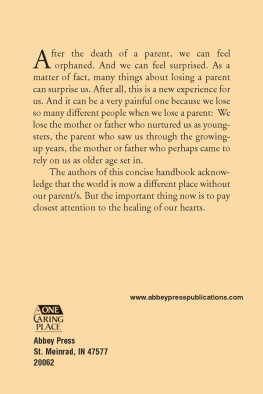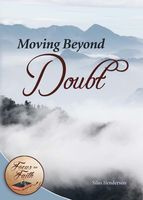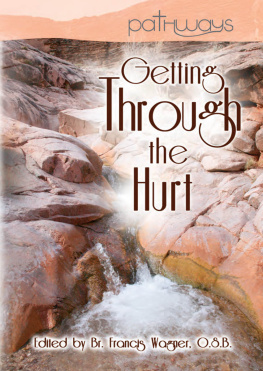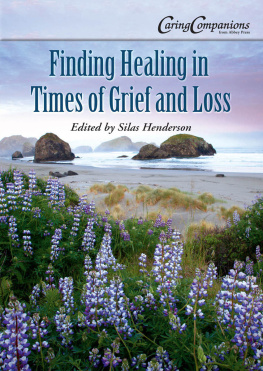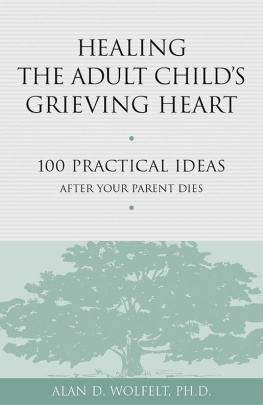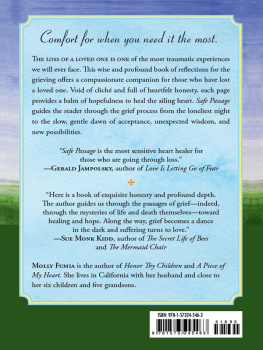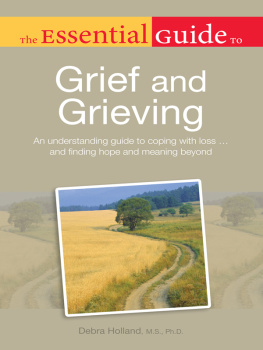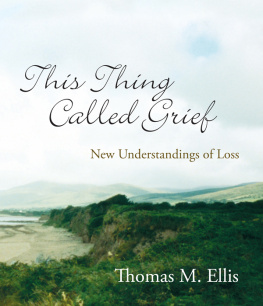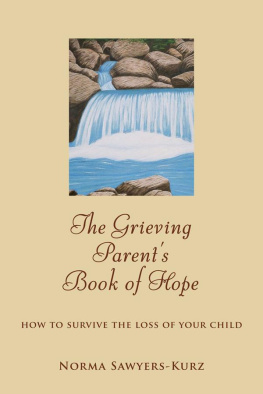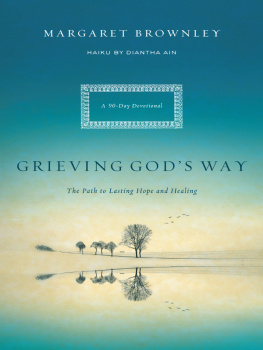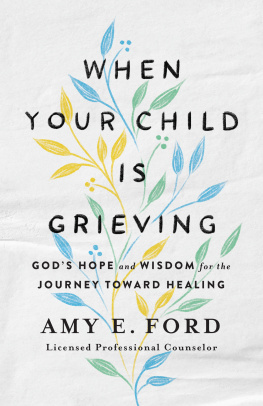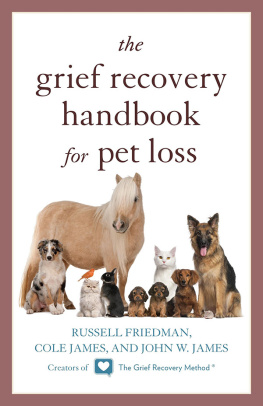
Grieving the Loss of a Parent
Second Edition
Edited by Silas Henderson, O.S.B.

Abbey Press
St. Meinrad, IN 47577
All rights reserved, including without limitation the right to reproduce this ebook or any portion thereof in any form or by any means, whether electronic or mechanical, now known or hereinafter invented, without the express written permission of the publisher.
This is a work of fiction. Names, characters, places, events, and incidents either are the product of the authors imagination or are used fictitiously. Any resemblance to actual persons, living or dead, businesses, companies, events, or locales is entirely coincidental.
Copyright 2013 Abbey Press
ISBN: 978-1-4976-7863-7
Abbey Press Publications
1 Hill Drive
St. Meinrad, Indiana 47577
www.abbeypress.com

Distributed by Open Road Distribution
345 Hudson Street
New York, NY 10014
www.openroadmedia.com

Introduction

No matter how long our parents live, when death finally comes, we might feel that we wanted more time with them or that their passing was simply too soon. Losing one or both of your parents means learning to live without a person who has always been a part of your life.
As Linus Mundy, a gifted writer who has accompanied many on their journeys through grief and loss, has noted, the loss that we feel at the death of a parent is especially painful because we lose so many different people: the mother or father who nurtured us as infants, the mother or father who saw us grow up, and the mother or father who, perhaps, came to rely on us as they aged.
It is our hope that the five reflections contained in this little book will help you honor your loss and find healing and hope as you remember the gift of the one youve lost. Although your life will never be the same, your memories will allow you to hold on to your parents most important qualitiesqualities that are part of the legacy they left for you. Treasuring that legacy is a way to keep your mother or father close to you in your mind and heart.
Silas Henderson, O.S.B.
Contents

CHAPTER I
Grieving the Loss of
Your Parent

By Judy Ball
M y mother, lying in a darkened hospital room, was close to death. But as she reached for my hand and looked at me intently, she was fully aware that her youngest daughter was at her side.
Judy, is it raining? she asked. No, Mom, its beautiful outsideand its even more beautiful where you are going, I answered as confidently as I could despite the tears in my eyes and the quiver in my voice.
She was almost ready to begin her journey home to God. Will you be my partner? she asked, her fingers still wrapped around my hand.
Before I could assure her that I would stay with her as long as I could, she was dead. The woman who had given me birth, nurtured me from infancy to adulthood, taught me how to pray and read and cross the street, and protected me from harm was gone.
Working your way through
It had been a long, agonizing 14 months watching my mother go from stubbornly insisting she could continue to live on her own to needing more and more care as a series of small strokes, and finally cancer, took her mind and body. My family and I had been on a forced march, trying to do our best but never feeling adequate to the task.
But with my mothers death, memories of the months of exhaustion, fear, self-doubt, second-guessingand, yes, complaining, When will all this end?instantly vanished. I had experienced the death of loved ones before, but never did it hurt like this. I was almost 44 years old, but I felt orphaned.
Ironically, our society shows very little understanding about the unique pain of losing a mother or father, even though close to 12 million Americans bury a parent annually. What a powerful support group we could be if we were organized!
Perhaps the following strategies will be a support as you cope with a parents death.
 Remember, you have every reason to grieve. A parents death often leaves adult children with a sense of abandonment and even panic that catches us by surprise. But why are we caught off guard when the death of the ma-maor da-da whose name we struggled to utter as tiny tots leaves us reeling or depressed or sleepless?
Remember, you have every reason to grieve. A parents death often leaves adult children with a sense of abandonment and even panic that catches us by surprise. But why are we caught off guard when the death of the ma-maor da-da whose name we struggled to utter as tiny tots leaves us reeling or depressed or sleepless?
We may have lived enough years to be an adult but we will always be a child in relation to our parents. Even if we find ourselves parenting our parents before their deaths, it is the parent of our youth and childhood that we bury. And, as author R. Scott Sullender says in Losses in Later Life, The world is a different place after our parents die.
Loss of a parent is the single most common form of bereavement in this country. (Yet) the unstated message is that when a parent is middle-aged or elderly, the death is somehow less of a loss than other losses. The message is that grief for a dead parent isnt entirely appropriate.
Edward Myers
When Parents Die: A Guide for Adults
Seldom are we, as adults, ready for a parents death. We may be busy building our careers or raising our families; we may be spending our free time traveling or seeking to settle down; we may be living close by or a continent away from our parents. Whatever the circumstances, it is virtually impossible to prepare ourselves emotionally for the loss.
Well-meaning friends and others may seek to console us by saying, Your mother lived a long, full life or Your dad was suffering so muchsurely its a blessing. But those phrases ring hollow when it is our beloved mother or our dear dad who lies in the casket. Even if we experience a strong sense of relief mixed with our grief, the sorrow is very deep and very real.
 Find ways to cry and talk. Take advantage of opportunities to share your grief as long as you feel the need. More than likely, many family members will be comfortable hearing you talk about your deceased parent.
Find ways to cry and talk. Take advantage of opportunities to share your grief as long as you feel the need. More than likely, many family members will be comfortable hearing you talk about your deceased parent.
Friends, especially those who have not experienced a parents death, may be more inclined to ask, for example, how your dad is doing since your mothers death than about how you are coping. But use this as an opening to express your feelings.
And if friends dont raise the issue at all, introduce it yourself. Good friends dont mean to be insensitive; they may need a little reminder that you still want and need to talk. If your eyes get watery, so be it; if tears roll down your cheeks, its a sure sign they need to be shed!
You can talk about your deceased parent even with those who didnt know your mother or father. When its June and youre chatting with your neighbor about this years garden, recall how your mother welcomed the arrival of the month that also brought with it her treasured roses. When your fathers favorite baseball player dies and the players name comes up in conversation with a co-worker, suggest that he and your dad surely will have a lot to talk about in heaven.
N o matter what the age of the parent or how the death occurred, the pain for the surviving adult child can be devastating.
Next page
